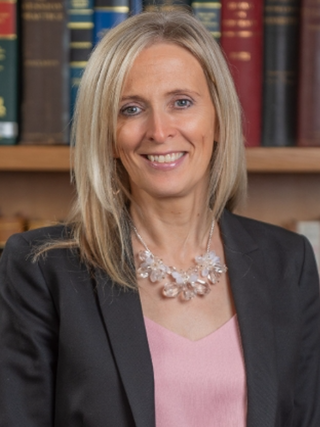
Allan Ramsay was a Scottish poet, playwright, publisher, librarian and impresario of early Enlightenment Edinburgh. Ramsay's influence extended to England, foreshadowing the reaction that followed the publication of Percy's Reliques. He was on close terms with the leading men of letters in Scotland and England. He corresponded with William Hamilton of Bangour, William Somervile, John Gay and Alexander Pope.

Thomas Ruddiman was a Scottish classical scholar.

The Scotsman is a Scottish compact newspaper and daily news website headquartered in Edinburgh. First established as a radical political paper in 1817, it began daily publication in 1855 and remained a broadsheet until August 2004. Its parent company, National World, also publishes the Edinburgh Evening News. It had an audited print circulation of 8,762 for July to December 2022. Its website, Scotsman.com, had an average of 138,000 unique visitors a day as of 2017. The title celebrated its bicentenary on 25 January 2017.

His Majesty's Solicitor General for Scotland is one of the Law Officers of the Crown, and the deputy of the Lord Advocate, whose duty is to advise the Scottish Government on Scots Law. They are also responsible for the Crown Office and Procurator Fiscal Service which together constitute the Criminal Prosecution Service in Scotland.

Robert Wodrow was a Scottish minister and historian, known as a chronicler and defender of the Covenanters. Robert Wodrow was born at Glasgow, where his father, James Wodrow, was a professor of divinity. Robert was educated at the university and was librarian from 1697 to 1701. From 1703 till his death, he was parish minister at Eastwood, near Glasgow. He had sixteen children, his son Patrick being the "auld Wodrow" of Burns's poem Twa Herds.
Andrew Millar was a British publisher in the eighteenth century.
The Edinburgh Courant was a broadsheet newspaper from the 18th century. It was published out of Edinburgh, Midlothian, Scotland. Its first issue was dated February 14–19, 1705 and was sold for a penny. It was Scotland's first regional newspaper and it was produced twice weekly for five years, thereafter continuing as the Scots Courant until April 1720.

George Lewis Scott (1708–1780) was a mathematician and literary figure who was tutor to the future George III from 1751 to 1755. A friend of the historian Edward Gibbon, the poet James Thomson and other members of the Georgian era literary world, he was described as 'perhaps the most accomplished of all amateur mathematicians who never gave their works to the world'.

Trinity Chain Pier, originally called Trinity Pier of Suspension, was built in Trinity, Edinburgh, Scotland in 1821. The pier was designed by Samuel Brown, a pioneer of chains and suspension bridges. It was intended to serve ferry traffic on the routes between Edinburgh and the smaller ports around the Firth of Forth, and was built during a time of rapid technological advance. It was well used for its original purpose for less than twenty years before traffic was attracted to newly developed nearby ports, and it was mainly used for most of its life for sea bathing. It was destroyed by a storm in 1898; a building at the shore end survives, much reconstructed, as a pub and restaurant called the Old Chain Pier.

The malt tax riots were a wave of protest against the extension of the English malt tax to Scotland. The riots began in Hamilton on 23 June 1725 and soon spread throughout the country. The fiercest protests, the Shawfield riots, were in Glasgow, but significant disturbances occurred in Edinburgh, Stirling, Dundee, Ayr, Elgin and Paisley.







